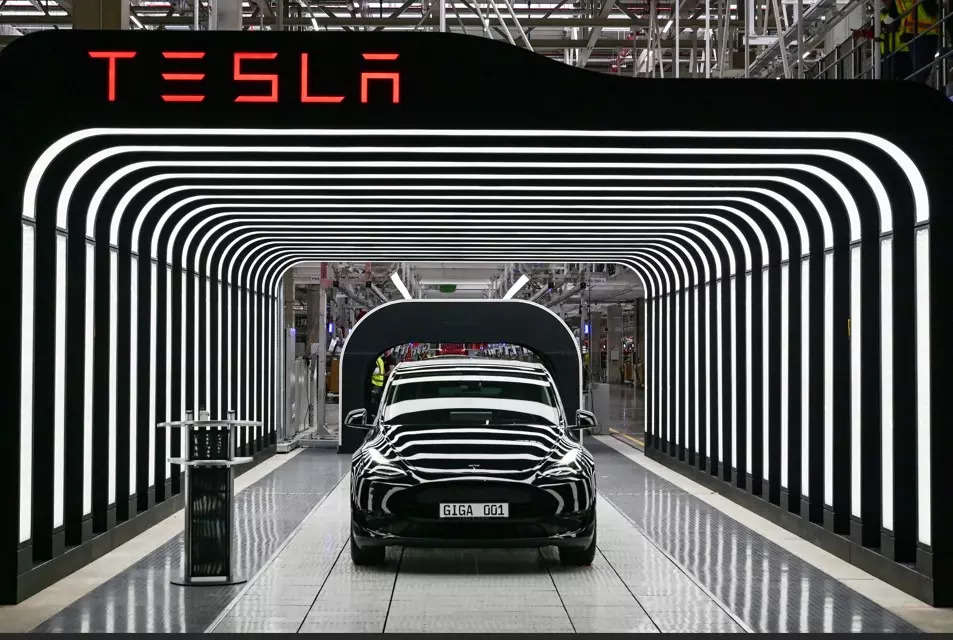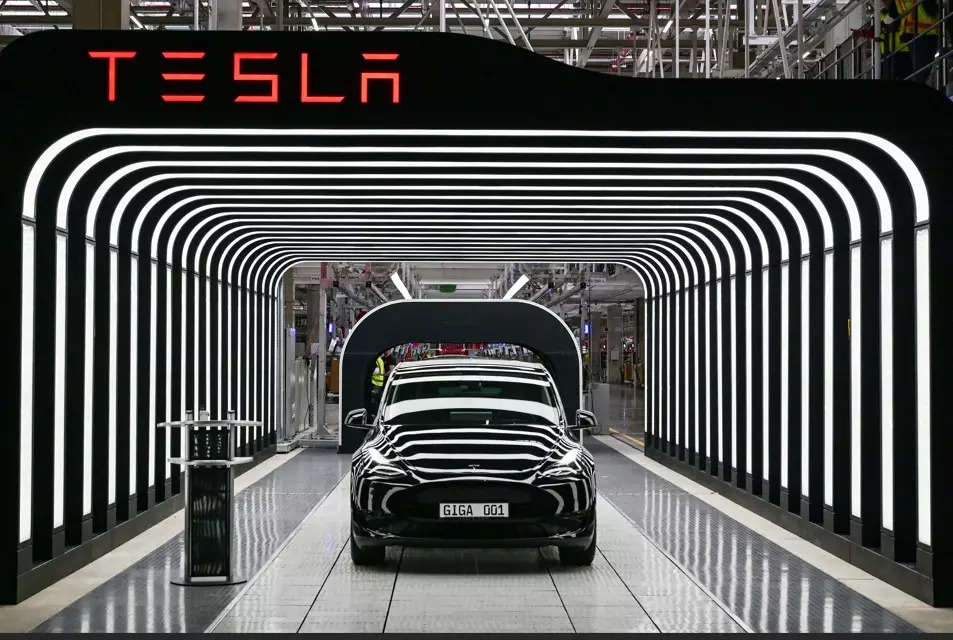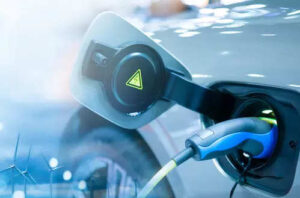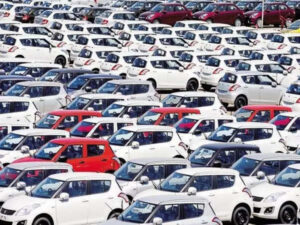
New Delhi: As the dust settles on the new, liberalised import policy for electric four wheelers, at last two different scenarios could play out in the near future. One, there will likely be a churn in the local components industry, as the promise of an exponential increase in volumes drives much faster localisation of certain key parts needed in electric cars.
As of now, two in three parts needed to make electric cars have to be compulsorily imported due to the hegemony of China in supplies. Second, the electric car market could get divided along the price lines – domestic OEMs such as Tatas and Mahindras may initially cater to the lower, price sensitive end while global heavyweights such as Tesla may bring pricier cars such a Model 3 before targeting the lower end of the market.
There have been some reports of Tesla unveiling a cheaper model this year, in preparation for its India entry.
The e-Vehicle Policy was unveiled on Friday, just a day ahead of the model code of conduct (which bars any policy announcements by the outgoing government). It allows a steep reduction in import duties of fully built four wheelers (from up to 100% to 15%) as long as the importing entity also sets up a manufacturing base in India within three years. There are some other riders too, but the upshot of the policy is that the US giant Tesla’s wishlist has been fully granted by the outgoing government. Elon Musk had sought a steep import duty reduction to bring in Model 3 and other variants to India while also promising up to USD 2 billion investment in setting up a facility.
The new policy allows import of cars with CIF value of USD 35000, which 70% duty currently (100% is for cars over USD 40,00) at 15% duty as long as they set up a manufacturing facility in India within three years. Another stipulation is that such companies should achieve a localisation level of 50% by the fifth year. The statement says that such a policy will “provide Indian consumers access to the latest technology, boost the Make-in-India initiative, strengthen the EV ecosystem by promoting healthy competition among EV players leading to a high volume of production, economies of scale, lower cost of production, reduce imports of crude oil and lowe trade deficit”.Under the new policy, any foreign EV maker should commit an investment of USD 500 million (INR 4150 crore), show localisation level of 25% within three years and 50% within five years. This will entitle the company to import e-vehicles of CIF value USD 35,000 (about INR 29 lakh) and above at a concessional customs duty rate of 15% for five years. The annual imports of e-vehicles under this policy have been capped at 8000 units.
Also, the total number of EVs which can be imported under the new policy would be determined by “the total duty foregone or investment made, whichever is lower, subject to a maximum of INR 6484 crore”. And lastly, the investment commitment made by each player who agrees to set up a manufacturing facility would have to be backed by a bank guarantee, in lieu of the customs duty foregone.
Localisation:
Shamsher Dewan, Senior VP and Group Head (Corporate Ratings) at ICRA, pointed out that countries that have been front-runners in EV adoption have also developed a local vendor ecosystem. “This policy is a step in the right direction and would aid in increasing EV components localisation in India, which is currently at 30-40%. Chassis components that require minimal technology upgradation are manufactured locally. There has been substantial localisation in traction motors, control units, and battery management systems over the years, while battery cells, which constitute 35-40% of the vehicle cost, are still entirely imported. This scheme gives rise to manufacturing opportunities for domestic auto component suppliers. For parts that are already used in ICE, there could be technological advancements in certain cases, resulting in higher content per vehicle. The e-PV component market is expected to be at least INR 50,000 crore in terms of revenue potential for ancillaries.”
Domestic manufacturing capacities for batteries – which account for up to 40% of the cost of an electric vehicle – are already lined up for major investments.
Suzuki Motor Company, the parent of Maruti Suzuki India, has firmed up two separate facilities for batteries. TDSG, a three way joint venture between SMC, Toshiba and Dentsu in 50:40:10 ratio, has a six million cells per annum installed capacity in Gujarat. This is India’s first Li-ion cell and battery manufacturer and Maruti is buying battery packs for its hybrid vehicles from TDSG besides also exporting these to Europe and Indonesia. This plant manufactures the Lithium-Titanium-Oxide battery for use in hybrids and after the initial investment of INR 1200 crore, the JV has raised the total investment to INR3700 crore.
The second SMC facility is also coming up in Gujarat, through Suzuki R&D India, at INR 7300 crore investment for cell and battery packs and this facility will exclusively make batteries for the Maruti EV slated for launch in FY 25. Hyundai Motor India has earmarked INR 20,000 crore investment to “make further inroads into EVs and modernise its vehicle platforms” in a phased manner over the next decade, Chief Manufacturing Officer Gopala Krishnan C S had told ETAuto earlier.
The company plans to establish a state-of-the-art battery system assembly unit, with an annual capacity of 150000 units, in Tamil Nadu.
And Tata AutoComp had entered into a joint venture with Chinese company Gotion “to Design, Manufacture, Supply and Service Li-ion Battery Packs for Electric Vehicles in India” about four years back. According to industry sources, this JV sources battery cells for Tata EVs from China and battery packs are then assembled at its Pune facility.
Mahindra & Mahindra also already has a tie up with South Korean company LG Chem where the latter develops “a unique cell exclusively for India application and will also supply Li-ion cells based on NMC (nickel-manganese-cobalt) chemistry with high energy density. These cells will be deployed in the Mahindra and SsangYong range of Electric Vehicles. LG Chem will also design the Li-ion battery modules for Mahindra Electric, which in turn will create battery packs for the Mahindra Group and other customers,” as per a statement issued at the time this tie up was announced.
Sunjay Kapur, Chairman of Sona Comstar (which is one of the Indian suppliers of Tesla) said the new policy “heralds a new era of innovation and accessibility to cutting edge technology and amplifies the ‘Make in India’ initiative. By incentivising local manufacturing and fostering healthy competition, this policy will not only accelerate the adoption of EVs ut also bolster economic growth”.
Indian vs. foreign OEMs
Overall, the current volumes of electric cars being sold in India are rather modest. The market, much like for ICE vehicles, can be divided into the INR 15 lakh-18 lakh mass market segment and the INR 25 lakh-40 lakh high-end segment. Volumes in the mass market segment are primarily driven by Tata Motors, MG Motors and M&M whereas foreign players like BYD India and Volvo etc operate in the premium end of the market.
Hemal Thakkar, Senior Practice Leader and Director at Crisil, had pointed out earlier that the new policy will lead to a spur in investments for the auto component industry. “And the government has ensured that it will be limiting imports of electric four wheelers to 8000 units per annum, which would not lead a significant dent on the domestic industry. In fact, this will also provide the customers a choice to look at various models at attractive price points beyond the ones present in India currently”.
Maruti Suzuki India had also earlier welcomed the government’s decision to allow foreign OEMs to set shop in India, saying this will spur infusion of best practices and latest technology into India. The company had also said that the new policy is catering to the upper end of the car market so it is unlikely to impact local OEMs.
Vietnam’s VinFast, which has already signed an MoU with the Tamil Nadu government for setting up a manufacturing facility with commitment of USD 500 million initially, has said that the Indian initiative is a crucial part of strategy to establish a strong presence in key markets and strengthen its supply chain for global expansion. But analysts at brokerage Emkay sounded a note of caution, saying sales of some luxury EVs from German OEMs could be impacted by the new policy.
“We believe that the EV policy aims to promote development of EV ecosystem/local manufacturing in India, while reasonably protecting the Indian OEMs largely operating below the USD35,000 price point. Nevertheless, there could be some risk to a few of the upcoming models of M&M and Tata Motors at the upper end of the SUV market. It could also potentially impact sales of luxury vehicles (German brands) with increased entry of mid-to-premium EVs at competitive pricing.”






